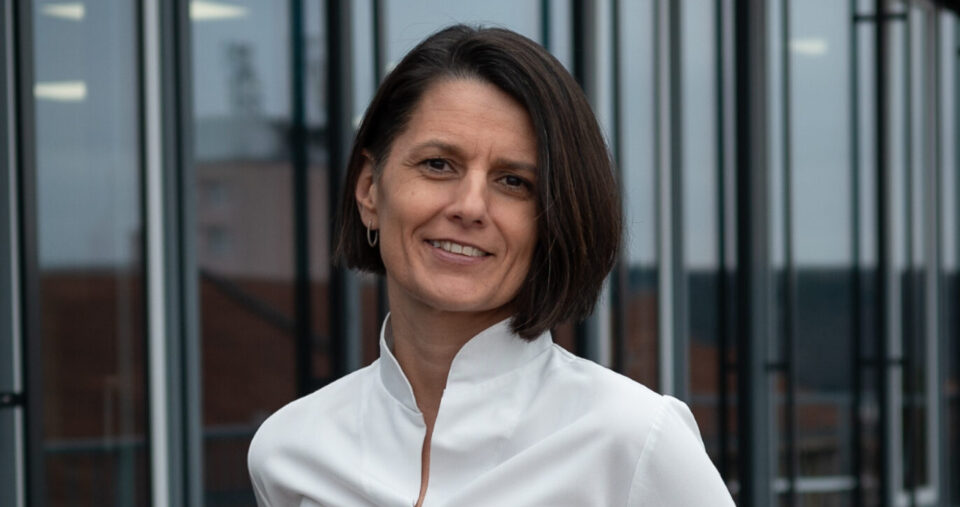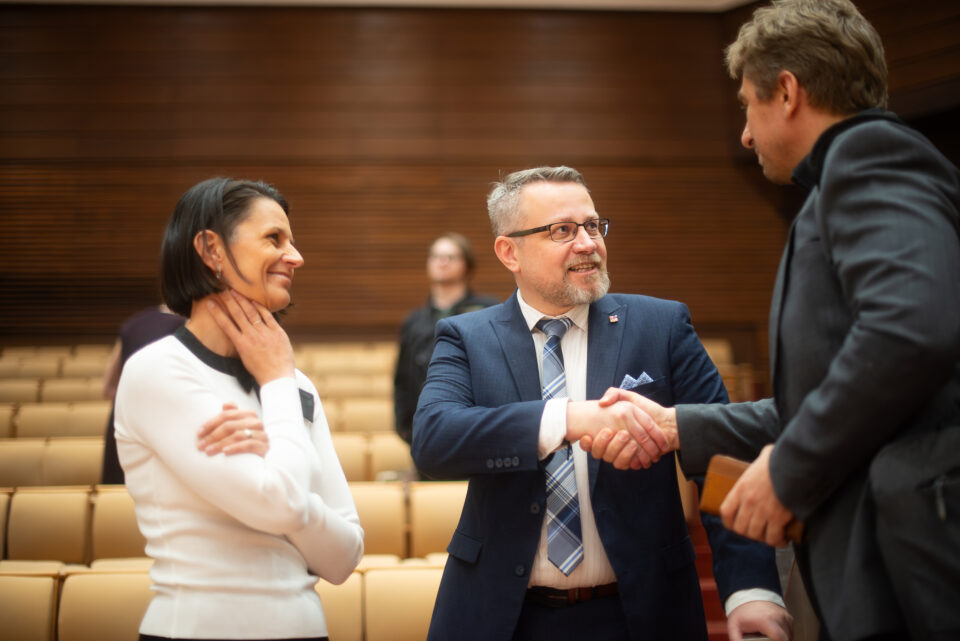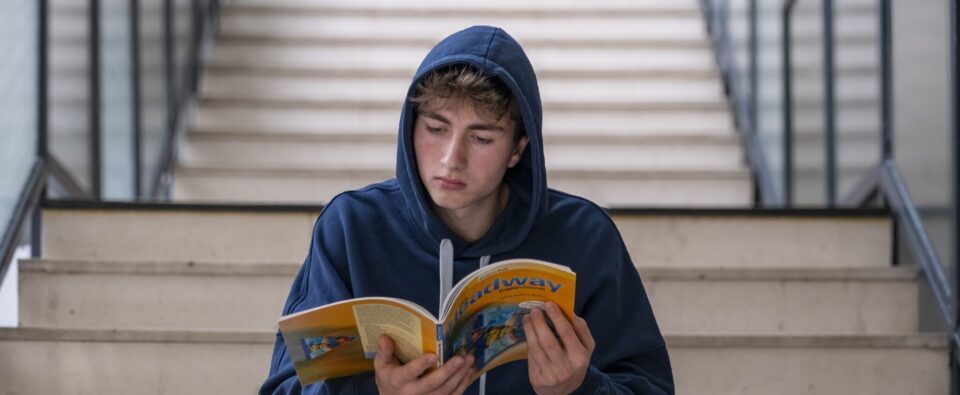The DofE programme has had a very successful year in 2024, with the highest ever number of participants last year, almost 9,000. Nearly two and a half thousand young people completed Bronze, Silver or Gold levels. And after nine years, there has been a change in the national office itself. In June, Gabriela Drastichová, the long-time director of the Czech Radio Foundation and the Světluška and Ježíškova vnoučata projects, took over as its head. In this interview we introduce not only her, but also her plans for the development of DofE in the Czech Republic.
Do you remember the first time you heard about the DofE?
You'll be surprised, but I only got to know the DofE during the selection process when I applied for the role of Director of the DofE National Centre. However, I knew the DofE by its first name, EDIE, which won the award in 1995. Under the auspices of the Department for Education, the first ten schools in the Czech Republic were involved then. Among them was the Czech-English Grammar School in České Budějovice, of which I am a graduate. And I knew EDIE mainly as a program that provided students there with an experience of volunteer service. And even today, when I know DofE a little more intimately, regular volunteer service by young people is an absolutely central part of the programme for me.
It's been about a year since you were offered the job of Director of the DofE. Why did you decide to take the job?
There were more reasons. I left the Czech Radio Foundation and its wonderful projects Světluška and Ježíškova grandchildren at a time when both long-term fundraising projects were thriving. And I was able to look back with joy and inner peace at six years of meaningful work, at a team firmly anchored in the Foundation's mission, and at the relationships with partners that made it possible for the Foundation to change the system. I was ready for a change, and I wanted it to be a professional change that would be a learning opportunity, that would set a new direction for me, and that would be an ambitious challenge. From my first meeting with members of the DofE's Board and Supervisory Board, I knew I had found exactly that. 😊 In the DofE there was opportunity for development, shared values and pleasingly confident goals.
You came to DofE from the Czech Radio Foundation, you led the Světluška and Ježíškova vnoučata projects. You changed the world of the blind to the topic of non-formal education. Is there anything in which these two, at first glance different, topics are similar?
My theme in Světluška was also the education of young people with disabilities. Both school and informal. For people with disabilities, informal education is an opportunity to level the starting line, an opportunity to make friends and experience success that is deserved and not out of pity. That's why the low-threshold nature of the programme is a major theme for me in the DofE. To enable young people from different backgrounds, circumstances, with different life stories to join the DofE, no matter what level they start from. Just DofE for all. 😊
And what surprised you the most after your arrival?
It was only after my first visits to DofE centres, schools and other organisations where the DofE is working that I realised that the DofE can co-create the culture of a school, that it can also be beneficial for teachers, guidance counsellors, preventers, coaches. It gives them the opportunity to have often very personal encounters with young people because it takes them back to why they once chose to be teachers, to be guides to young people's self-development and growing up. And in fact, it never ceases to amaze me what young people are capable of, and how much of their time DofE teacher-leaders are willing to give to these people. Because they believe in them.

In the DofE, the main theme for me is low-threshold
You say that you are now planning the development of the DofE for the period up to 2030. What are the main goals you have as Director?
I have already mentioned one of the strategic objectives, and that is the low threshold of the DofE. To create the conditions so that young people who have not seen the value in self-development can and want to participate in the programme. Those who don't have a supportive environment and need a boost from outside to give them the courage to go the extra mile for themselves and their community. And then it's creating an ecosystem that will enable up to 40,000 young people a year to complete one of the levels of the program. Because that number can already make a real social change. And that a responsible and successful society.
So if we could jump back in time to 2030, what would you like the DofE to look like in the Czech Republic?
The growth of the programme that I have been talking about is conditional on us being able to look after volunteers, teachers and other youth workers in DofE centres well and giving them the tools to work with young people in a way that does not burden them administratively but allows them to focus on their role as guides. The future is definitely in digitisation, automation and the involvement of AI assistants who will help with enrolment, keep a close eye on participants' activity in the programme and keep an eye on the rules that are binding on all participants. I also wish we could get DofE into the course offerings in the Faculties of Education, so that there are more teachers in schools who will be experienced in this way of working with young people and will organically link other colleagues from the congregation.
And if I stop at this year 2025, what are the goals for this year?
The DofE is now in nearly 400 organisations, schools, children's homes, low-threshold clubs, children's and youth homes and educational institutions. In order to provide quality methodological support to all the leaders who look after the programme in DofE centres, we need to rely on the help of those DofE centres that thrive best in the regions and can be centres of learning communities. We would like to build 12 of these this year and then groups of DofE centres around them to support and inspire each other. We also have a year ahead of us marking the 30th anniversary of the DofE in the Czech Republic, which is a wonderful opportunity to retell the story of the DofE, its values and its mission.
The story of the boys who didn't break a stick
Is the DofE planning any celebrations for its round birthday?
I think birthday celebrations are important especially for us as a team that develops DofE in the Czech Republic. It is an opportunity to look back on a job well done. After all, in 1995 DofE started as EDIE in 30 secondary schools. Today, there are more than 380, engaging 9,000 young people a year in the programme. The celebrations will include a ceremony in Zlín to celebrate the achievements of the bronze and silver DofE students and to commemorate the Zlín - Lesní čtvrt' Gymnasium, which was the first DofE centre in the Czech Republic. We will dedicate the whole year to the stories of DofE graduates who return to us today as patrons, supporters or DofE leaders.
What has been your proudest moment while leading the DofE so far?
I am genuinely delighted for the team at the DofE National Centre. It has taken us a while to get to know each other, to understand each other's way of working, but it has confirmed to me once again that alignment has to be on values first and foremost, and that when you get it right you get up to work with joy.
Is there a young person whose story within the DofE has personally impacted or inspired you?
I was most affected by the story of the boys from the Children's Home in Bystřice pod Hostýnem. Boys, over whom somebody broke a stick. But not their educators and teachers who believed in them and offered them a way out. The ones who took it proudly leave the home with the DofE badge on their shirts as "dofes", because that's who they are at that moment.
And I was most inspired by my colleague Nadia. She is a gold graduate of the DofE. An amazingly capable, empathetic and persistent young woman. She worked her way through the journey of a DofE participant, then got involved as an ambassador, went on to become a regional manager and look after DofE centres, and finally faced the challenge of the big Stand By Me project, which she led to great success in partnership with DofE Romania and Slovakia with the support of UNICEF. And today, she is dedicated, among other things, to the development of young DofE ambassadors, because she was one of them years ago. 😊
If you could choose one goal to give yourself within the DofE areas - sport, skills or volunteering. What would it be?
I'd like to run 5 kilometers without stopping. I'm running pretty Indian right now. 😊 I would like to learn Spanish so that I can communicate on holiday. I would like to create volunteer opportunities in our town for elementary school children. Wish me luck!
And if you were to be a participant in the program for a while and you were to plan an expedition. What would it look like, and what would be the goal?
I recently returned from Ghana and I can't get her out of my mind. So I would plan an expedition to Ghana, which is a safe and extremely authentic African country. And I'd like to show my expedition friends life without pretense, let them experience the immediacy of school children, invite them to a local snow-white wedding and three-day funeral, and get them excited about the craftsmanship and entrepreneurship of the Ghanaian people. Will you join us?
ABOUT GABRIELA DRASTICH
Gabriela Drastichová came to DofE from Czech Radio, where for six years she managed its endowment fund and the extremely successful collection projects Světluška and Ježíškova vnoučata. Her original professional background was in adult education with a focus on teachers and public administration staff, and later in corporate education. She subsequently used the experience gained in the academic and corporate world in the non-profit sector, where she focused on education and employment of disadvantaged groups, supporting social and technological start-ups and introducing sustainable business principles into corporate strategies.



